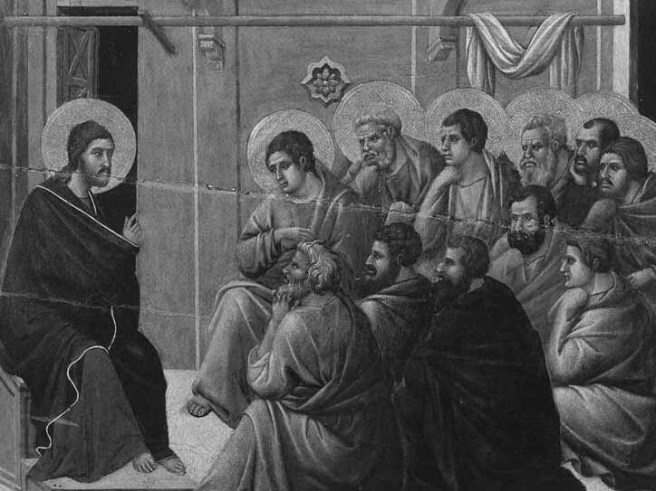
****Warning: I am retracting my original stance regarding this blog (in a way). I first researched this concept almost 5 years ago and to this day, I still have found that the meanings of the Paleo-Hebrew letters can hold each of the meanings I outline in this blog, however, what I did not fully consider is how drawing meanings in such a vague way can be dangerous. Now, my stance has always been that Paleo-Hebrew letter meanings are certainly no way to derive new secrets or meanings from verses in the Bible. To me it seemed characteristic of our Omniscient God that His purpose and fingerprints could be seen even in the ancient letters used by His chosen people; the Jews. I thought this only because those meanings can already be seen clearly in the text and they only serve to confirm what God already made clear in Scripture. The problem with this, that I see now, is twofold; first, that the process of pulling the desired meanings from each letter requires one to do so inconsistently. So much so that while it is possible the meanings drawn could be true, it is simply too abstract to be evidence of a Messianic prophecy. The second problem is that if we grant this vague way of finding hidden meanings in the Bible, the same inconsistent process could be used by others to confirm almost any idea they want from the Bible. And if we promote this inconsistent process for confirming Christ as Messiah and as Creator, which is already made clear in Scripture, denying the process to be used to promote poor or bad theological ideas would be somewhat inconsistent.****
The claim: The first two words in Genesis act very much like a Messianic Prophecy, so the story of Jesus as Creator and Savior is outlined in just two words which happen to be the first two words in the Bible!
There have been several videos on YouTube and various people who teach about this hidden meaning of the first two words in Genesis (and other words in Scripture). This is a brief blog about my personal research into this claim that the first two words, in their ancient language form, are actually a shadow of Jesus.
This claim is that in ancient Hebrew (Paleo-Hebrew) there is an idiographic or pictographic meaning assigned to each letter of the alphabet. These are symbols that depict an idea and because of this, the idea of Jesus as Creator and Savior can be seen in the words themselves. Now, I am no Hebraist so I did some research online from various sources to see if the claim about the first two words in the Bible really did hold up and as far as I can tell (and to my surprise), the claim is true (but with a very important caveat; the process used to come to this conclusion is not consistent and is very vague). Since it’s not a perfect science where hermetically you could apply the same rules to all Biblical texts, this idea at best might be said to be used as a shadow of Christ (in my opinion) but as mentioned in the warning above, this is too abstract a process to be good evidence for that.
A few things to keep in mind; Hebrew reads from right to left in case anyone looks this up themselves (which I encourage everyone to do with all claims like these) so don’t let this confuse you. Also, when translated from the Hebrew to English the first verse in Genesis reads: “In the beginning God created the heavens and the earth.” While this is accurate for the English sentence structure, the proper reading of the verse in the original Hebrew would be “In the beginning created God the heavens and the earth.” So here is a breakdown of the first two words in Genesis;
The 1st word Barasheet translated as “In the beginning”
The letters in order are: Beyt Resh Aleph Shin Yud Tav
Beyt + Resh together form the word Bar meaning “Son of” (in Aramaic, in Hebrew it is Ben)
Aleph = Ox head meaning Power, Authority, Strength; said to be used by the Hebrews to represent “God”
Shin = Two front teeth meaning Sharp, Press, Eat… (the function of the teeth when chewing; consume/destroy)
Yud = Arm meaning work, make and deed; the functions of the hand
Tav = Crossed Sticks meaning Mark, Sign, Signal, Monument
So the first word in the Bible, in the beginning, holds this idea (according to the claim);
The Son of God (will be) destroyed (by His own) work on a cross. Even from the beginning, the Son of God was to die on a cross for us by His own hand to save us from our sins.
Also, the 2nd word Bara translated as “Created”
The letters in order are: Beyt Resh Aleph
Beyt + Resh together form the word Bar meaning “Son of” (again, in Aramaic, in Hebrew it is Ben)
Aleph = Ox head meaning Power, Authority, Strength; said to be used by the Hebrews to represent “God”
The second word in the Bible, “created,” (according to the claim) pictographically means Son of God, so as Scripture plainly tells us (John 1:1-3), it can also be seen in the word “created” itself that Jesus was the one who created us; everything that was created was created by Jesus, the Son of God.
So even though this way of deriving hidden meaning from the text may be too abstract to be a type of shadow of Christ or a Messianic prophecy, there are many other shadows of Christ and Messianic prophecies which are hermeneutically sound. If you would like to know more about Jesus and how to know Him personally, please email us at Theologetics3.15@gmail.com
A few things of note; Beyt alone = house or tent as well as family
Resh alone = head meaning man, chief, top, beginning and first, each of which are the “head” of something
Shin can basically mean “the function of the teeth when chewing” and other sources say “to destroy” which is what the teeth do to food. Yud basically means functions of the hand which could be understood as “by His hand”. And Tav which amazingly looks like the cross and can mean “sign”, “mark” and other online sources say “covenant” so this process is taking the letter itself as a literal sign of the cross.
*Disclaimer: Some Christian organizations teach that Paleo-Hebrew meanings are completely unrelated to the Hebrew language and that it can be dangerous to try to derive meaning from Scripture in this way– and as stated in the warning at the beginning of this blog, this can be true. But I will say I was never condoning or promoting some new secret way to interpret Scripture. I’m not saying this is hermeneutically sound when applied to all words in the Bible, just that it is at the very least, interesting how some key words appear to hold shadows of Christ in their original pictographic form and that it should not be surprising to find that given an almighty, all-knowing God planned Jesus coming to earth from the very beginning, even though it would not have been known to man. With that said, it is my stance now that this process is too inconsistent to be of much help apologetically and at worst opens a door for those who seek to promote non-biblical theologies.
Clark Campbell
Theologetics.org
https://youtu.be/W2-o0WI_qz8
http://www.ancient–hebrew.org/alphabet_letters_beyt.html
http://www.ancient–hebrew.org/alphabet_letters_resh.html
http://www.ancient–hebrew.org/alphabet_letters_aleph.html
http://www.ancient–hebrew.org/alphabet_letters_shin.html
http://www.ancient–hebrew.org/alphabet_letters_yud.html
http://www.ancient–hebrew.org/alphabet_letters_tav.html












